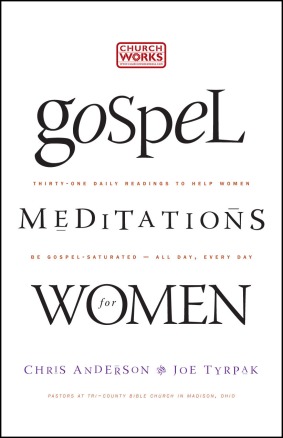 A while back I lamented the state of unhealthy churches, including those within self-identified fundamentalism. That post touched a nerve, apparently saying what many others are thinking. I grieve that some assemblies have no vision for evangelism, no passion for worship, or no heart for genuine spiritual transformation. Often these fatal flaws reveal themselves in a preaching ministry that is focused less on the exposition of Scripture than on the reinforcement of standards or the entertainment of saints. Though it’s a strange term, I think there is an “Ecclesiastical Darwinism” at work. Churches that aren’t spiritually healthy (philosophically, corporately, and individually) will dwindle, even as the more “fit” advance. Part of that’s just reality: sheep will eventually migrate to shepherds who care for them. But part of it’s more “top down”: Christ threatens churches that don’t honor him with the extinguishing of their light (Rev 2:5).
A while back I lamented the state of unhealthy churches, including those within self-identified fundamentalism. That post touched a nerve, apparently saying what many others are thinking. I grieve that some assemblies have no vision for evangelism, no passion for worship, or no heart for genuine spiritual transformation. Often these fatal flaws reveal themselves in a preaching ministry that is focused less on the exposition of Scripture than on the reinforcement of standards or the entertainment of saints. Though it’s a strange term, I think there is an “Ecclesiastical Darwinism” at work. Churches that aren’t spiritually healthy (philosophically, corporately, and individually) will dwindle, even as the more “fit” advance. Part of that’s just reality: sheep will eventually migrate to shepherds who care for them. But part of it’s more “top down”: Christ threatens churches that don’t honor him with the extinguishing of their light (Rev 2:5).
That said, it also grieves me when the body is hurt by its own members. Christians young and old are far too willing to cause trouble in the local church. Some make phone campaigns against the pastor. Some depart loudly, pulling others with them. I’ve even known of a former member seeking vengeance by sending a letter to a potential donor urging him not to support a church. I’d be scared to death to do such a thing. Literally.
Yes, there are times when you must work with established leadership (within the bounds of Scripture and the church’s Constitution) urging spiritual reformation. And yes, there are times when the only feasible answer is departure for a more likeminded church. However, before dropping a bomb on your way out the door and before urging others to join you in your exodus, remember that the local churches which the New Testament addressed as the treasured possession of our Savior were shockingly flawed. Despite the church’s many shortcomings, Paul still condemned divisiveness as a sin worthy of discipline (Titus 3:10-11).
Nowhere is Scripture’s warning against hurting even a flawed church more evident than in 1 Corinthians 3. The problems in the Corinthian church are well known to us in the twenty-first century and were scandalous even to unbelievers in the first century. Nevertheless, 1 Corinthians 3:16-17 gives a warning which I urge you to consider. Having reminded believers that they are “God’s temple” (corporately, since “you” in verses 16-17 is plural), Paul warns them against “destroying God’s temple” (v. 17). What’s that about? Essentially, he says that hurting even a flawed Christian assembly—in context, especially by schism—is like spraying graffiti on the Old Testament temple. Attacking the local church is like taking a sledge hammer to the holy place. Sowing discord in the flock is desecrating the Holy Spirit’s home. It’s unthinkable, and God will destroy the one who does it (v. 17). These are hard words, but they are necessary. We need to be too scandalized—and even too scared—to lift our hands or voices against Christ’s church.
Again, there are times when you need to leave a church, whether you’re a member or a pastor. Be slow to do so. Be prayerful. Be humble. Be helpful, especially if the leadership of the church desires to move in a biblical direction. But if you eventually need to leave, do so graciously and quietly. If others need to arrive at the same decision, allow the Lord to bring that about. He’s certainly capable. Don’t have the splitting or splintering of a church on your record and conscience. Even one like Corinth.
Filed under: Bible Exposition, Fundamentalism, Ministry Musings, The Local Church | Tagged: 1 Corinthians 3, Church Unity, Leaving a Church, Local Church, Sowing Discord | 10 Comments »









